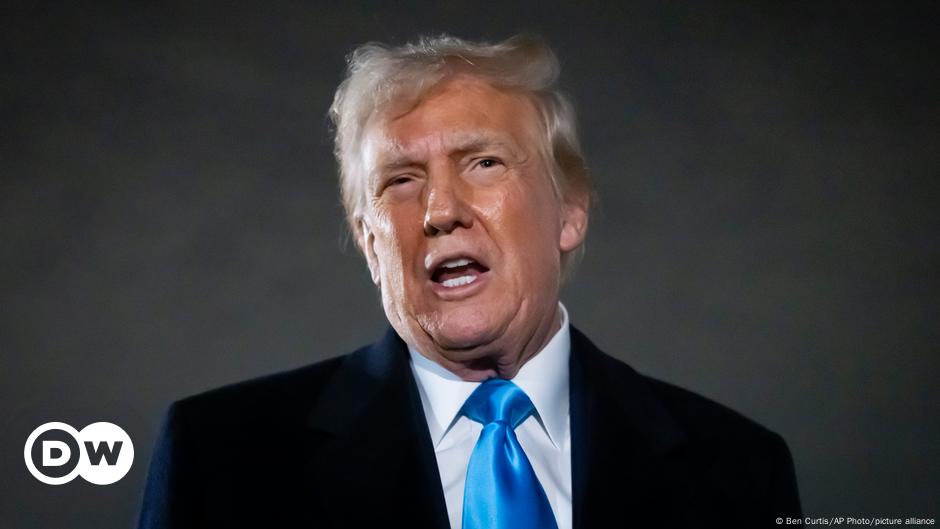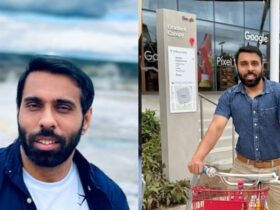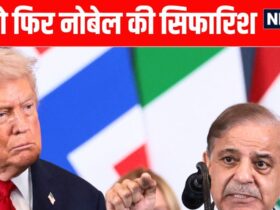The nameplate at the entrance didn’t look very nice, Lorelei Grigorita said, laughing. With its plain white walls and barred windows, this building in Moldova’s capital, Chisinau, also offers a glimpse of color in the sign written in dark pink letters just above the entrance: Queer Cafe.
“When we put it above the entrance, all the threats came,” cafe manager Grigorita told DW. “But no,” said Grigorita. “That sign isn’t going anywhere. That’s the whole point of having a weird spot in town: It has to be visible from the outside.”
In fact, the name Queer Café is somewhat misleading. This place is neither specifically for queer people, nor is it a coffeehouse serving coffee and cakes. The name reflects what people associate with a café: a meeting place where different people come together.
“We want to be a place where people can have fun,” said Grigorita, who studied journalism and communications. “If we called it a ‘queer community centre’, people probably wouldn’t come because they would think it was just for people in trouble.”
Located in the western part of Chisinau, the café has been one of the few welcoming spaces for members of LGBTQ+ communities in the capital since opening in July 2022.
Discrimination against LGBTQ+ communities remains a major issue in Moldova. In 2021, an 18-year-old recruit left the army after being singled out and bullied. At the time, Moldovan President Maia Sandu also expressed outrage.
Eighty percent of respondents in 2024 Study The Equality Council of Moldova, with the support of the United Nations, said that they did not want any gay person to live in their neighborhood.
Choir, Cinema, Library
The Queer Café has a choir, movie nights, regular exhibitions and workshops, and a small library with books available to borrow.
From time to time the doorbell rings and new guests arrive at the café. Grigorita, 27, welcomes him with a few words and a quick hug. The idea of the café was born during a quirky film festival and he has been involved ever since. At that time, Grigorita had returned from Sweden, where she had lived and worked for a year. This period abroad helped give her the courage to publicly commit to working with LGBTQ+ communities. To pay her bills, she works in marketing alongside her full-time job as a manager of a queer café.
Homosexuality was legalized in Moldova in 1995. However, society has been slow to catch on and, especially in rural Moldova, many people still keep their queer identity to themselves. “We are barely visible outside Chisinau,” Grigorita said.
Still, he said, there has been considerable progress. “Even though the government has given us very little public support in recent years, we activists have done our work and have seen that tolerance is gradually increasing,” he said. “For example, there are more outlandish initiatives.”
Twelve years ago, Moldova was one of the European countries lagging behind in terms of gay equality, along with Azerbaijan, Armenia and Russia. According to, the country has now reached the midfield 2025 rainbow mapA global annual overview by the International Lesbian, Gay, Bisexual, Trans and Intersex Association.
Visibility vs Security
As the presidential elections approach in the fall of 2024, something will change, Grigorita said. Following the vote, the government of Moldova reported apparent Russian influence efforts. The Kremlin’s narrative, which has been taken up by pro-Russian parties in Moldova, is that the EU is the source of moral degradation and a forced “rainbow ideology”.
Hate messages on social media became hate messages on actual walls too. Many walls in Chisinau were marked with figures of two same-sex couples with the text: “Do you think this is normal?”
In the summer of 2024, the Queer Café had moved to a new location, and with its new public profile came new dangers. “They tried to intimidate us and threatened to set the building on fire,” Grigorita said. “We used to feel despised in society, but now that has turned into open anger and violence. As soon as we turned into a political issue, many people feel threatened by our existence.”
Shortly after the cafe opened, miscreants damaged the door. Since then, guests have had to play video intercom. It is a compromise between visibility and security.
Tension before 2025 elections
In September, voters in Moldova went to the polls to elect a new parliament. Pre-election polls showed pro-Russian parties in a tight race with the pro-EU Party of Action and Solidarity.
Throughout the year, LGBTQ+ communities in Chisinau were already experiencing what happens when pro-Russian parties are in power. In May, the Chisinau City Council decided to ban all Pride events in the city. According to Chișinău’s mayor, Ion Ceban, this was to protect “traditional family values”.
Nevertheless, the Pride event on 15 June went ahead as planned and several thousand people demonstrated for a diverse Moldova. At the same time a counter-protest took place, the “March for the Family”, organized by the right-wing conservative, pro-Russian Socialist Party of the Republic of Moldova (PSRM). Participants in the counter-march tried to break through police barriers and attack the pride march.
On the evening of the parliamentary elections, the Queer Café hosted an election party because Grigorita assumed that no one would want to be alone that day. When it became clear that pro-European PAS was winning, celebrations broke out in queer cafes. “We were so relieved,” recalls Grigorita.
Leo Zbanca of GenderDoc-M, the oldest Moldavian NGO advocating the rights of gay people, echoes this sentiment. “Many people were feeling unsafe before the elections and were even ready to leave the country,” Zbanka said. “Now that the pro-European path is in place, we can finally breathe and plan our lives.”
Zbanka has called on the government to emphasize legal recognition of gender identity and same-sex marriage in the new legislative period.
Grigorita said this would be real progress – but the issues go far beyond the legal position. She is tired of political justification for homosexuality. Queer identity doesn’t have to be a political issue, Grigorita said. Once the double wooden doors close behind visitors to the queer café, guests are free to be who they are, she said.
This article was originally published in German.






Leave a Reply